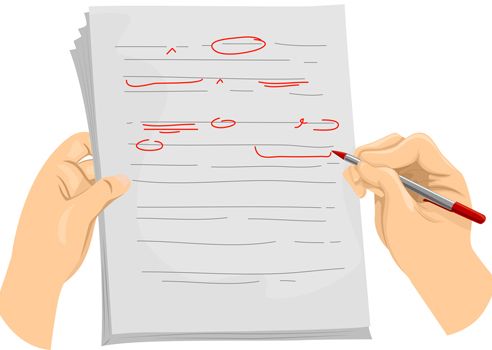Reading time: Less than 3 minutes
Grammarly is a free app with a paid-for premium option. Is it worth spending the money for the more expensive option?
One of my clients has a subscription to the grammar-checker service Grammarly. The basic function offered by Grammarly — identifying most spelling and grammar errors — is no charge. But if you want the more robust version you need to pay $29.95/month.
That cost sounds small, but like cell phone and cable bills, it adds up quickly. That relatively small monthly fee works out to $359.40 per year, which isn’t exactly small potatoes. Of course, you can save some money if you’re willing to pay quarterly ($19.98/month or $239.76 per year) or annually ($11.66/month or $139.92 per year). But — here’s my important warning — don’t sign up for a year-long program unless you’re certain it’s going to pay off for you.
So, what’s the difference between the free version and the premium one? And how does it compare to the spell checker everyone gets with MS Word? Here’s my take on spelling and grammar checkers:
MS Word is better than nothing. But not by much. It will catch some of the more egregious errors you might make. But it won’t always identify homonyms — words that sound the same but that carry different meanings: road vs. rode, for instance. (I just did a test, and Word captured the difference between their and they’re so its artificial intelligence has improved in the last five years, at least.)
The free version of Grammarly is much more sophisticated than Word. It captures a bevy of errors that Bill Gates’ software ignores. I just ran my blog post from last week through it, and it identified 12 of what it termed “critical issues” in the post. I didn’t agree with some of them as I eschew the Oxford comma (unless I need it for clarity) but it caught a few items I had missed. For example, in the sentence:
This is almost always wrongheaded, and is a terrific way to convince yourself that you have a case of writer’s block.
Grammarly told me that I shouldn’t have used a comma after wrongheaded. Oh, oh. Grammarly was right.
Then again, for the sentence:
Some people are born tall; others are born short.
It told me that short should be shortly. Nice try, Grammarly, but you’re wrong about that.
In any case, I appreciated the little explanatory notes Grammarly provided with each “error.” I also liked the way I was able to ignore their advice when I deemed it wrong or unnecessary.
More alarmingly, the service told me I had 30 “advanced issues,” and I needed to pay for an upgrade to find out what they were. Although it pained me to spend $29.95 for checking a single article, in the interest of investigative journalism, I decided I had to do it. (Also, while you must give them your credit card number upfront, you’re entitled to a refund for up to a week.)
So here is the information the extra $29.95 bought me:
*An unclear antecedent:
This is almost always wrongheaded, and is a terrific way to convince yourself that you have a case of writer’s block.
I think Grammarly was right that my “this” wasn’t transparent. Guilty! I have a bad way of being unclear with antecedents.
*An overuse of the progressive tense:
I’m having to re-do work that I did once before.
Yes, Grammarly was correct. I should probably have said, “I have to re-do work that I did once before.”
*A repetitive word:
Do a mindmap rather than an outline. I know your grade 10 social studies teacher told you that you always needed to prepare an outline.
I disagree. Some word repetition, used deliberately, can help “pull” readers through articles.
I won’t bore you by listing the other errors. Let me just say they were in a similar vein to the ones I’ve just listed.
So, here is my verdict about Grammarly. I think the no-cost service is excellent and I’m going to start running all my writing through it. For most people, I believe the premium service is not worth the cost. But if your boss wants to pay for it for you, then accept his or her offer.
Also, if English isn’t your first language, or if you’re dyslexic, I think the no-cost service will still catch the vast majority of errors that you need to worry about.
Finally, here’s an essential point to understand: the service is automated. It doesn’t involve a breathing human proofreader or copy editor. It’s a machine doing the work. Hence, it’s not going to offer the kind of detailed, intelligent feedback you would get from a well-trained human being.
You can pay Grammarly extra, if you want, to have them forward the piece to a real live person. But I always prefer to develop a relationship with my own living, breathing copy editor.
*
My video podcast last week aimed to help writers stop holding their breath while working. See it here and consider subscribing. If you have a question about writing you’d like me to address, be sure to send it to me by email, twitter or Skype and I’ll try to answer it in the podcast.
*
Do you use a grammar checker? We can all learn from each other so, please, share your thoughts with my readers and me in the “comments” section below. Anyone who comments on today’s post (or any others) by April 30/17, will be put in a draw for a copy of Your Writing Coach by Jurgen Wolff. Please, scroll down to the comments, directly underneath the “related posts” links, below. Note that you don’t have to join the commenting software to post. See here to learn how to post as a guest.

